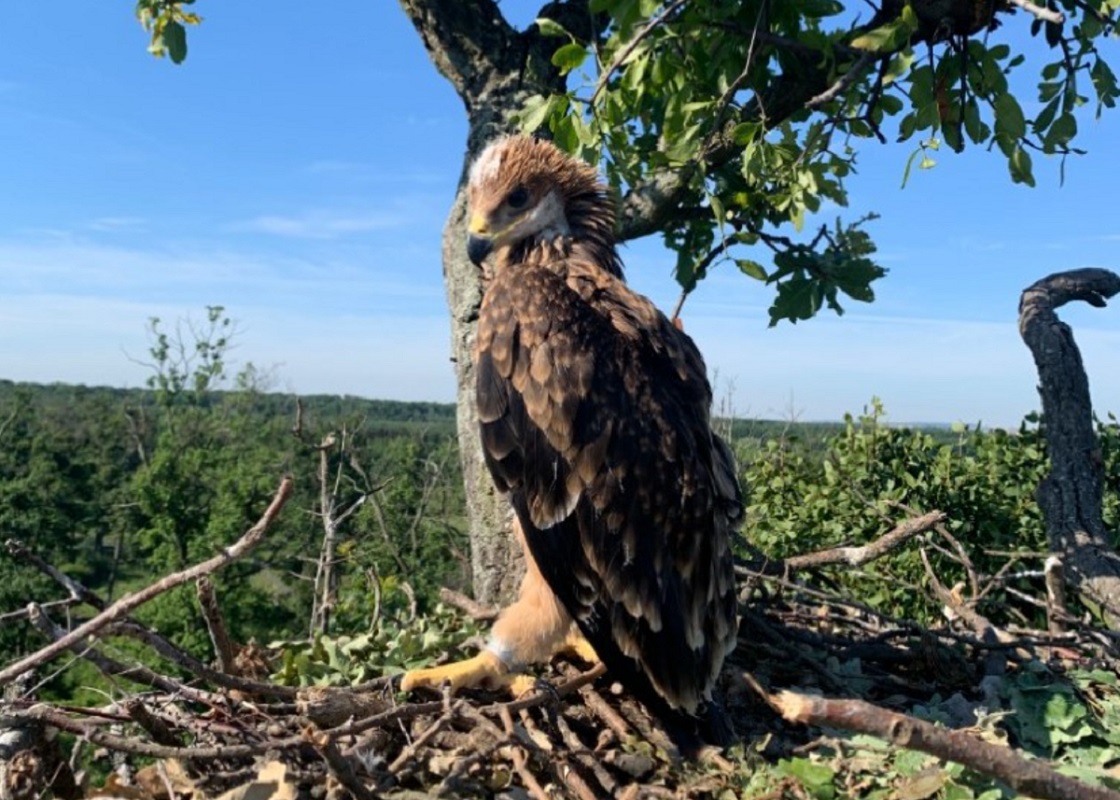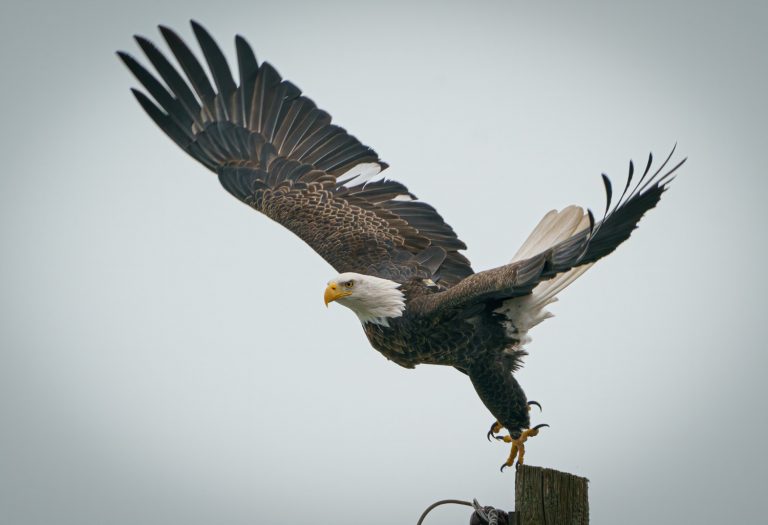This year, the population of the critically endangered eastern imperial eagle has grown by seven. Ornithologists recorded 13 pairs in the South Moravian Region, the only part of the Czech Republic where these birds of prey nest. Photo credit: Freepik / For illustrative purposes.
Czech Rep., Dec 14 (BD) – The Czech Ornithological Society (CSO) has reported a growth in the eastern imperial eagle population this year. The eastern imperial eagle (Aquila heliaca) or golden eagle, first nested in the Czech Republic only in 1998, and are limited to South Moravia. 13 pairs and seven young were recorded by the CSO.
“The nesting golden eagle population In the Czech Republic exceeded ten pairs for the first time this year, thirteen in total. We consider every eagle chick born to be a great success. The golden eagle is one of our rarest nesting predators,” said David Horal, who works on the study and protection of eastern imperial eagles in the CSO.
Eastern imperial eagles are the most endangered birds of prey in Europe, with less than 4,000 nesting pairs across the continent. The majority of these birds live in Russia, Kazakhstan and Turkey. Ornithologists in the European Union have counted only a few hundred pairs.
“Eleven pairs built their nests this year, and nine of them were confirmed to have laid eggs. In the end, six pairs successfully produced young, a total of seven chicks,” stated Horal.

Location trackers, known as GPS-GSM loggers, are attached to the eagles by ornithologists to track the birds’ movements and detect if they are still alive. Four chicks received trackers this year. The adult eagles in the Czech population typically remain around the nesting ground in winter but some young birds fly south.
The greatest threat to the eastern imperial eagle population is humans, who disturb the birds during nesting season or intentionally kill the birds. According to Horal, the birds are very sensitive to interference, whether it is from foresters, fishermen or tourists, and the pair will abandon their nest.
Power lines and illegal poaching, such as shooting or poisoning, are also a threat to the eagles. The CSO combats poaching with the aid of specially trained canine units that search for poisoned baits. This operation is conducted in partnership with the PannonEagle Life project, which aims to support the eastern imperial eagle population in the Czech Republic, Hungary, Austria, Serbia and Slovakia







